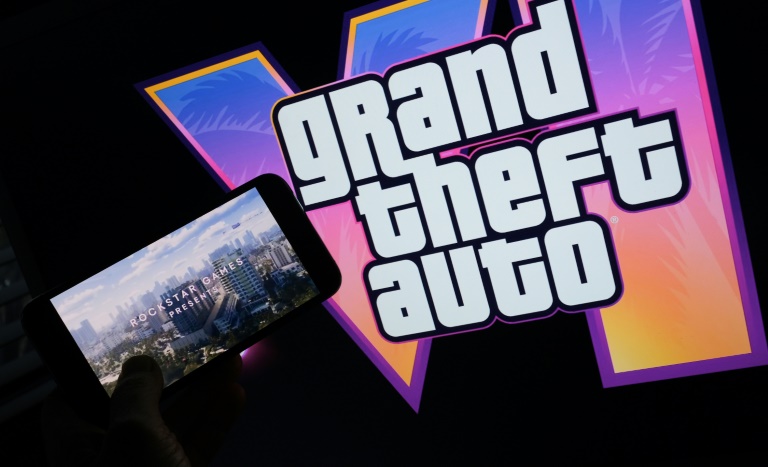[LONDON] Financial services are excluded from Donald Trump’s trade war for now. Banks are still feeling the pain.
HSBC Holdings’s market value has dropped by almost US$30 billion on fears that its Asia-focused operations will bear the brunt of the conflict.
At Goldman Sachs Group, the spread between where the bank’s stock actually trades and where analysts think it should be trading widened to its biggest gap in at least a decade as worries mount about a slowdown in investment banking business.
JPMorgan Chase’s stock whipsawed on Monday (Apr 7) as chief executive officer Jamie Dimon warned investors that his bank plans to hoard more of its profits – rather than returning them to shareholders through buybacks and dividends – given “the many risks facing the global economy.”
All in all, more than US$700 billion of market value was erased from major bank stocks around the world in a week, according to calculations on Tuesday before US markets opened. Financial stocks have been among the hardest hit in the broader sell-off that battered the S&P 500 and other benchmark indexes.
“The market is making knee-jerk reactions,” Chris Marinac, an analyst at Janney Montgomery Scott, said in an interview. “The biggest issue right now is credit – and how the banks are going to provide for the higher uncertainty of a recession.”
BT in your inbox
Start and end each day with the latest news stories and analyses delivered straight to your inbox.
Bank chiefs were concerned enough to gather on a call to discuss the effects of tariffs and the global economy on Sunday, according to a person familiar with the matter, confirming an earlier Sky News report.
Here’s a look at some of the banks considered most vulnerable to the tariff shocks:
Trade-focused banks
HSBC and its rival Standard Chartered are the two European banks most exposed to Trump’s burgeoning trade war, according to Bloomberg Intelligence’s Tomasz Noetzel. That’s because the firms operate massive Asia-focused trade finance businesses – and revenue from those operations could be due for a “reality check” depending on how the tariff discussions shake out, he said.
“HSBC and Standard Chartered’s emerging-market focus and exposure to global trade set them apart from European peers, with their continued pivot to Asia making them increasingly comparable – and their earnings more vulnerable – to recent reciprocal tariffs,” Noetzel said in a note to clients.
Standard Chartered has spent years helping customers navigate the increasingly tense relationship between the US and China as many corporations shifted their supply chains to other Asian nations such as Vietnam and the Philippines. The group’s cross-border income last year reached US$7.3 billion, or 60 per cent of the total revenue generated by the firm’s corporate and investment bank.
That could be at risk given how far-reaching Trump’s tariff policies have become.
“The latest US tariffs and rising trade friction may slow this momentum,” Noetzel said. “Severe US tariffs on Asian economies – from 17 per cent for the Philippines to 46 per cent for Vietnam – could weigh on regional GDP.”
US recession
A growing chorus of economists are saying they expect the US to slip into a recession this year as activity shrinks under the weight of tariffs and consumers struggle to cope with higher inflation. Some have said there’s a possibility that the US experiences stagflation, a term that refers to a slowing economy coupled with elevated prices.
Either scenario would likely drag on the balance sheets of big US banks like JPMorgan or rivals Bank of America Corp. and Citigroup If there are signs that consumers and corporations can’t keep up with their bills, these lenders will have to start setting aside additional provisions and, eventually, write off that bad debt.
Big US banks will have their first real chance to defend their stock prices come Friday, when first-quarter earnings season kicks off. JPMorgan and Wells Fargo are expected to report an increase in net charge-offs for the period on the day – but investors’ real focus will be on their outlook for provisions from here.
“All of these cross currents and turbulence may take years to play out – it is almost impossible to confidently put them into a quarterly or even annual forecast,” Dimon said in his annual letter to investors on Monday. “We always hope for the best, but we are prepared for a full range of outcomes.”
Investment banking woes
Already, investment bankers and underwriters across Wall Street are dealing with the second-order effects of Trump’s trade policies as companies pause their plans to go public or strike deals while they make sense of the tariffs.
That’s especially bad news for banks like Goldman Sachs and Morgan Stanley, Jefferies Financial Group and Evercore, which all reap a greater proportion of their revenue from investment banking activities than traditional banking rivals.
Analysts at Morgan Stanley have already downgraded their outlook on Goldman’s stock, citing its exposure to investment banking, which they said they view “as having the fastest-twitch response within the financials sector to recession risk and deteriorating market conditions.”







